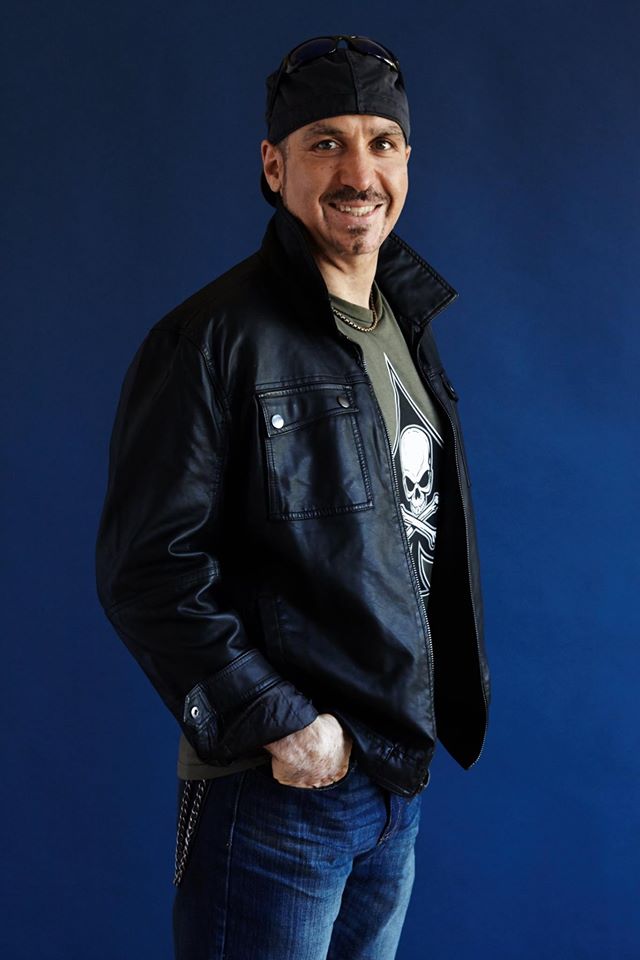BOBBY BORG – The DIY Music Marketing Guru


BOBBY BORG is a former major label, independent, and DIY recording/touring artist. A distinguished educator, he teaches at Musicians Institute and UCLA Extension and speaks at Berklee College of Music and other distinguished schools worldwide. Borg is the author of the new book, Music Marketing For The DIY Musician (http://bit.ly/1po5FyO), and over 1,000 magazine and blog articles. He is VP of Special Events for the Los Angeles chapter of the American Marketing Association and is founder of Bobby Borg Consulting, where he assists rising music professionals globally. He lives in Los Angeles. His website is www.bobbyborg.com.
1. Tell us about Music Marketing For the DIY Musician.
Thanks for asking, I’m really proud of the new book. It took years to write it.
Essentially, the book is a step-by-step guide to producing a fully integrated, customized, low-budget plan of attack for artists marketing their own music.
The goal is to help artists take control of their own destinies, save money and time, and eventually draw the full attention of top music industry professionals. It’s ultimately about making music that matters—and music that gets heard!
2. How is Music Marketing For The DIY Musician different?
The biggest difference is that it is written specifically for DIY musicians by a musician with DIY, indie, and major label success, making it a more credible, focused, practical, and relatable resource for artists.
Also, It covers the complete marketing process—from vision through execution—with handy templates and samples in each chapter to help artists create fully-customized marketing plans.
And finally, it introduces sophisticated business and research tools (SWOT, SMART, AIDA, and PFB Charts) not found in most music marketing books, enabling artists to choose more confidently and even scientifically the right strategies for their own career path.
3. Provide one crucial tip from the book?
Do not create music in a vacuum with the intention of just throwing it out there and hoping for success. Hope is not a strategy!
Instead, have a clear sense of what you stand for, while also trying to uncover where the world is going. Look for ways where you can be unique and do something that has never been done before.
As hockey legend Wayne Gretzky said, “The key to success is to skate where the puck’s going, not where it’s been.”
4. What about The Musician’s Handbook?
The Musician’s Handbook, first published in 2003 and revised in 2008, will be rereleased in 2015 under the derivative title, Business Basics For Musicians: The Complete Handbook from Start To Success.” When revising the book, I realized how different the book had become so I decided to retitle it.
5. Tell us more about your life as a musician.
I am an artist true to the core.
I started playing at the age of 4, I was taking lessons at age 6, and was practicing 5 hours a day by the age of 12.
Further, I was practicing 16 hours a day and studying in New York with the best musicians by the age of 18, and I was graduating from Berklee College of Music and joining a group on Atlantic by age 24.
Finally, I was releasing my own records DIY style and then joining a multi platinum band and touring the country (and Europe) before age 30.
6. What attributed to your success as a musician?
Working hard, being able to take one step at a time, and understanding people are all key attributes.
I practiced by ass off. Make no mistake—you have to put in your 10,000 hours!
Further, I wasn’t afraid to dissect my long-term vision into smaller digestible chunks, accomplishing one baby step at a time. Most people want it all right now!
Last, I understood that you must show people “why they should care about you and how they will benefit by doing business with you”). Many artists think the world revolves around them and that they deserve success. No one owes you anything.
Oh, and one more thing: Always pay homage to those that help you along the way, and they’ll be continually willing to help you for years to come. Tom, that being said, as your former professor, I am impressed that you asked me to do this interview and tell your readers about my new book. You clearly understand maintaining relationships in this business. Good for you!
7. Why did you start writing books and teaching at UCLA and Musicians Institute?
I was tired of watching musicians get beaten like a baby seal when it comes to the music business. Artists are so amazingly gifted when it comes to right brain creative stuff, but they shy away from the left-brain business stuff. One reason is that most books about the music business are written by attorneys for attorneys. My position is to clearly present “information to musicians, by a musician.”
8. Do you do private consulting?
Yes! I offer private one-to-one sessions in Los Angeles and New York and phone and Skype sessions as well. Essentially I “help music professionals to make their music into a more profitable business.” Please visit http://www.bobbyborg.com/consultations/
9. Anything else you want to add?
Remember That Finding Your Passion Is a Blessing Within Itself.
Since I was very young, I knew precisely what I wanted to accomplish. I would wake each morning and be driven by a specific agenda—practicing, writing, promoting, etc. When I went to sleep at night, I reflected on what I accomplished and always felt fulfilled. There has never been a wasted, sad, or lonely day in my life. I couldn’t imagine things to be any other way.
So rejoice and feel blessed! You too have something that moves you and gives your life meaning. Something that gets you up in the middle of the night with pad and paper in hand to jot down that song idea. It’s not about how much you accomplish, but the fact that you’ve found your inner self. Your true purpose! Because in the end, there’s nothing greater than that!
10. What might be the “Plan B” for musicians in case that something goes wrong with the marketing plan?
A marketing plan is a living and breathing document. It is never fool-proof and thus one must always remain open to adjusting it as one collects information from the marketplace. One should expect for a plan B, plan C, and a plan D. Success usually doesn’t come easy.
11. What is your personal experience from music biz contracts that the deal was not fair from the band’s side?
When a band enters into a contract, it must always consider what it is giving up and what it is getting. The objective is to find an even balance. For instance, recording deals for artists have always been one-sided in favor of the record companies, but smart artists know how to work the record company to get expert distribution, record promotion, and other services the label offers that can help build a brand for a band that lasts long after the record company is gone.
12. During the SWOT analysis, how do you evaluate strengths and weaknesses|? Do you have any mathematical method or any other way for evaluation?
Strengths refer to internal resources, such as finances, man-power, skills, etc. Weaknesses may be considered the opposite of strengths. In the best case scenario, musicians need to be honest with themselves in the evaluation process, but this doesn’t always happen. Thus, a helpful method is to seek outside research by asking the fans or speaking with expert consultants to determine and evaluate strengths and weaknesses.
13. Do you think that being a “hired gun” and composing music for commercials, movies, etc. is more profitable than recording music as a regular artist?
It takes a long time before one begins to make money as a band. In essence, you are trying to convince people of a new product. On the other hand, when hiring out your services, there is instant gratification. You are asked to do a job and you are paid a fee. Bottom line, it comes down to this: Do you want to open your own business where the pay-off may be bigger down the road, or do you want to work for others where the pay is immediate but you will always be working for others? There are pros and cons to everything in life.
14. That was an awesome final tip. In closing, where can we get your books?
Right now Music Marketing For The DIY Musician (ISBN: 9781480369528) is available at Hal Leonard’s website under “Trade Books” (http://bit.ly/1po5FyO). It is also available on AMAZON http://amzn.to/X4Fwst in both physical and digital form and on www.bobbyborg.com. Peace and thanks.


